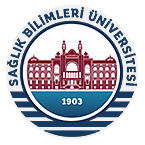ABSTRACT
In this study, it was aimed to evaluate the neuropsychological tests and clinical presentation of Tourette’s syndrome in adolescence, which classically begins in childhood by reviewing the patients who were diagnosed to have the syndrome during medical examination of military service. Patients admitted to the Department of Psychiatry of Gulhane Military Medical Faculty and diagnosed to have Tourette’s syndrome were included in the study. In the study an interview form questioning the history of the psychiatric illness of patients and their families, detailed description of the current ticks, and the presence of other accompanying psychiatric symptoms, and Wechsler Adult Intelligence Scale (WAIS), Benton Visual Retention Test, Bender-Gestalt Visual Motor Perception Test, Minnesota Multiphasic Personality Inventory with the purpose of psychometric assessment were used. EEG and computed brain tomography were performed in all patients. Twenty one male patients participated in the study. Vocal tics, motor tics, coprolali, copropraxia and echophenomens were detected in 100%, 57.2%, 80%, 19% and 85% of the patients, respectively. In neuropsychological assessment abnormalities in brain tomography (9%), EEG abnormalities (52%) and impairment in visual memory and motor understanding were detected, however no disease-specific findings were identified. But, there was no evidence specific to the disease. It has been suggested that additional behavioral and emotional problems may develop in addition to symptoms of the disease in patients with Tourette’s syndrome at the age of twenties. Therefore, it is important that medical and social support should be permanent in these patients.



